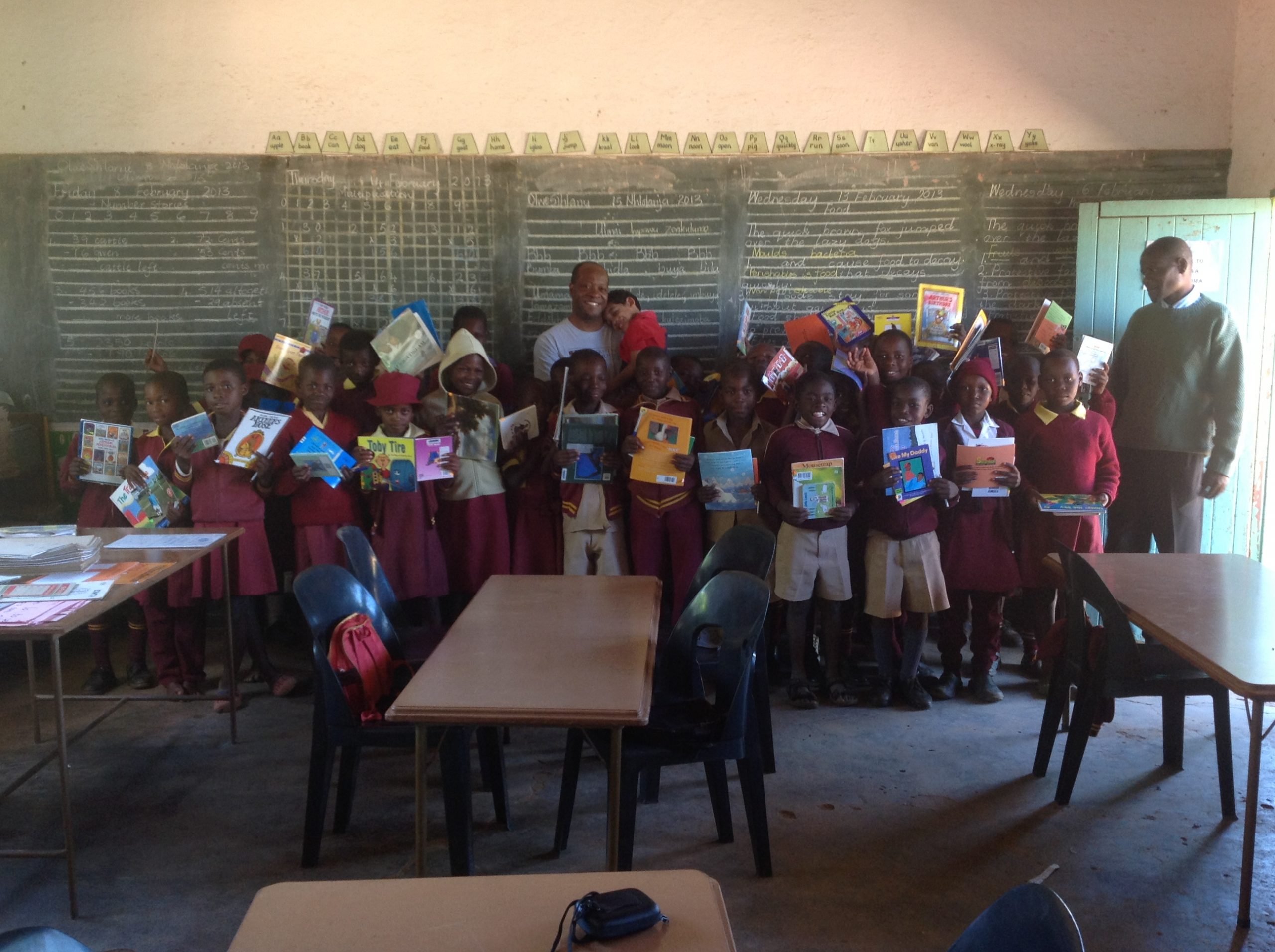
Siza Mtimbiri is looking for people to help with a new school and medical centre he has set up in Zimbabwe.
The project will provide much needed quality education for both HIV/AIDS infected and affected school-going children in addition to providing currently lacking critical healthcare for both children and adults in the rural village.
Siza Mtimbiri
A Gates Cambridge Scholar who is setting up a school and medical centre in Zimbabwe for children infected or affected by HIV/AIDS is calling for professional partners and volunteers.
The Hope Academy and Medical Centre, which covers the Bulilima and Mangwe Districts in the Matabeleland South Province of Zimbabwe, was set up by Gates Cambridge Scholar Siza Mtimbiri who is its Executive Director.
He has seen several members of his own family die from HIV/AIDs and has experienced first hand how the silence and stigma that surrounds the virus has made the situation much worse for those who contract it. He also notes that most of the focus in Zimbabwe has been on sexually active adults with the virus, with little provision for affected children, particularly in rural areas.
Since the advent of the first recorded HIV infection in 1980, Zimbabwe has now passed the 1 million mark of HIV/AIDS related deaths. According to the National AIDS Council in Zimbabwe, there are close to 70,000 new infection annually. A low estimate of 55,000 people died of HIV/AIDS in 2015. Currently 115,000 children are living with HIV/AIDS and there are thought to be around 40,000 new child infections annually. The Ministry of Health and Child Care estimates a conservative 50,000 children who have no access to HIV drugs.
Siza says that when the possible number of untested children is added to the increasing number of HIV/AIDS orphans – now surpassing 880,000, it is clear that the health and care of Zimbabwean children requires many other parties to join the efforts of the government.
Breaking the cycle of poverty
Education and health are the areas most impacted by the epidemic, with many dropping out of education due to illness and the stigma that surrounds the virus. Siza argues that this calls for "a new system that attempts to address challenges brought by the epidemic". That means a learner-centred education with "a well thought-out framework on ‘how education systems can and must change their operations in relation to HIV and AIDS that looks at the quality of education at the level of the learner and also, at the level of the learning system" with an emphasis on inclusion, participation and dialogue as well as "circles of care".
Founded in 2006, the Hope Academy and Medical Centre, which covers primary education for both genders and high school education for girls, aims to provide that education. It is now fully registered and includes not only an education and health element, but will also conduct research in the area of children affected by HIV/AIDS. Its mission is "to break the cycle of poverty through the provision of education and health facilities to the children in rural Plumtree, to allow them to grow up to be self-sustaining individuals who can make a meaningful contribution to society and be part of the leadership in the future". The project was initially slated to start in Hope Fountain, another rural community in need, but political intervention at the time brought the work to a standstill.
Gates Cambridge Scholar Alyssa Wilson [2009] has been a director since 2011 and has been instrumental in assisting HAMC to obtain its not for profit status, but Siza says he would welcome more involvement from the Gates Cambridge community and others. He is specifically looking for a webmaster to work on the project's website, a team of grant writers and volunteers who can spare six months from when the school launches in September 2018. The first class will be in January 2019. The medical centre, led by Laura Mtimbiri, is also in need for volunteers who are medically inclined to assist in getting the centre ready for launch in 2019.
Siza, who is doing a PhD in Education and has over 14 years' teaching experience, says: "The project will provide much needed quality education for both HIV/AIDS infected and affected school-going children in addition to providing currently lacking critical healthcare for both children and adults in the rural village. It will become an innovation centre to tackle the long-standing and menacing challenges within the village. The idea of finding ways to consistently partner with the villagers will eventually allow the project to become self-sustaining. In the long term we want to see if we can work to create a model for similar rural environments within Zimbabwe."

Alyssa Wilson
- Alumni
- United States
- 2009 MPhil Physics
- Clare Hall
I am studying for an MPhil in Atomic and Optical Physics at the Cavendish Laboratory this year. I am from Southern New Jersey in the US, and graduated in June 2009 with a BS in Physics and minor in Mathematics from Drexel University in Philadelphia, Pennsylvania. In 2010 I plan to go to Harvard to study for a PhD in Physics. I also intend to become involved in outreach efforts aimed at getting young people to appreciate and become comfortable with science.












